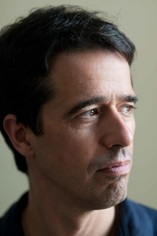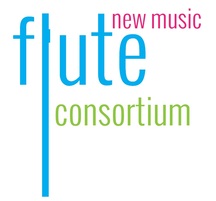Get to Know....João Pedro Oliveria  Flutists obliviously enjoy João’s works; he has been our most frequent finalist! Three of his compositions have been finalists in the FNMC Composition Contest; A Escada Estreita for alto flute and electronics (or alto and bass flute and electronics) and Entre O Ar E A Perfeio, for flute, piano, and electronics in 2014 and Burning Silver for flute, guitar, and electronics was a finalist in the chamber music category in 2015. João is currently composing a flute concerto; we’re looking forward to hearing it! Q&A with João… What about New music for the flute appeals to you? Flute is one of the most versatile and interesting instruments. It has an amazing richness of colors, timbres, and special effects. Composing for flute becomes almost like an adventure in an unexplored land, trying to find new landscapes, colors, and sound images. Who is your favorite “new music” composer and why? I have a great admiration for the music of Jonathan Harvey. His spirituality and inner self reflects in a very direct way in the music he composed. The treatment of timbres, the orchestration, and the work with electronics is one of the most successful in contemporary music. What are your favorite “new music” pieces and why? There are several. For example, Dhomont’s Le Trevail du Rêve is masterpiece of acousmatic music. Lachenmann’s Fassade has an amazing treatment of the timbre possibilities of the orchestra. Elliot Carter’s Symphonia Sum Fluxae Praetium Spei has an intensity of gestures and phrase relations that transmits a special energy to the listener. Describe your musical background and activities. Background in architecture and organ performance. Presently I am interested in the relation between sound and images, working on pieces with video or videomapping in instruments. For example: https://www.youtube.com/watch?v=tyuxBjw7C74 Do you have any upcoming events that you would like our friends and followers to know about? I am preparing the composition of a flute concerto. More about João… João Pedro Oliveira studied organ performance, composition and architecture in Lisbon. He completed a PhD in Composition at Stony Brook University. His music includes one chamber opera, several orchestral composition, a Requiem, 3 string quartets, chamber music, solo instrumental music, electroacoustic music and experimental video. He has received over 40 international prizes for his compositions, including the prestigious Bourges Magisterium Prize, the Giga-Hertz Award, 1st Prize in Metamorphoses competition, 1st Prize in Musica Nova competition, etc.. He is Professor at Federal University of Minas Gerais (Brazil) and Aveiro University (Portugal). He published several articles in journals, and has written a book about analysis and 20th century music theory. www.jpoliveira.com João’s Additional Works for Flute… Etude for Five Instruments Instrumentation: flute, clarinet, piano, cello, percussion Year: 1984 Duration: 12’ Le Chant de L’Oyseau-Lyre Instrumentation: flute, oboe, clarinet, piano, percussion, violin, cello Year: 2002 Duration: 11’ Prisma Instrumentation: Flute, accordian, piano percussion Year: 2008 Duration: 9’ …there are those who say that life is an illusion… Instrumentation: flute, oboe, trumpet, percussion, violin, cello, electronics Year: 1999 Duration:10’ Timshel Instrumentation: flute, clarinet, violin, cello, piano, electronics Year: 2007 Duration: 15’ Towdah Instrumentation: flute, bass clarinet, piano, percussion, electronics Year: 2009 Duration: 13’
0 Comments
Get to Know...Cherise Leiter This week, we feature composer Cherise Leiter. Her piece Chroma for flute/alto flute and cello, which is based on the colors of Colorado- her current home, was a finalist work in the 2014 FNMC Composition Contest. Q&A with Cherise…. What about new music for the flute appeals to you? The flute is such a versatile instrument, and strongly appeals to me as a composer. The range of timbre, dynamic possibilities, flexibility, and colors are so unique. Composers are now asking performers to explore all of the ideas, and I find that very exciting. Describe your musical background and current activities. Primarily a pianist, I play just enough flute to be dangerous! In 2001, I met Dr. Michelle Stanley, a fantastic flutist, who took a liking to my music, and that began my interest in composing pieces featuring the flute, usually in a chamber setting. I have paired the flute with soprano, cello, viola, and cello, guitar and cello, and clarinet and bassoon, and am currently working on a piece for flute and fixed electronics along the lines of Steve Reich’s Electronic Counterpoint. What advice can you give to flutists about approaching new music in practice? As a composer, I really enjoy working with flutists who are not afraid to experiment and try different things. If I ask for a certain effect, and the flutist has ideas for a different way to achieve that from what I know, I love it when she/he is willing to share those ideas. I would also advise plenty of ‘play’ time when practicing: how many different sounds can you create? Can you find sounds that you didn’t know were possible? You never know when a composer who plays just enough flute to be dangerous is going to ask for just that effect! More About Cherise…. Born in Florida, Cherise Leiter received a B. M. in Music Theory and an M. M. in Composition from the University of Florida where she studied with Dr. Budd Udell. She is currently an Associate Professor at Metropolitan State University of Denver, teaching music theory and composition. An active composer whose output includes works for choir, piano, voice, band, orchestra and chamber ensembles; her compositions have been performed throughout the United States, Canada, Scotland, France, Italy, Romania, and Japan. She was a featured composer at the New Music Symposium, the University of Central Missouri’s New Music Festival, the Aspen Composer’s Conference, the Women Composers Festival, the Atlantic Center for the Arts, June in Buffalo, and Brush Creek Foundation for the Arts. In her spare time, Ms. Leiter is an avid knitter, hiker, swimmer, cook, and bibliophile. She also has a vested interest in anything made of chocolate. She can be reached at [email protected], or www.cherisedleiter.com. If you enjoyed Chroma, check out these other works for flute… American Folk Suite Instrumentation: soprano and flute Duration: 11’ Chromacity Instrumentation: flute/alto flute, clarinet, bassoon Duration: 9’ The Life in a Day Instrumentation: flute/alto flute, guitar, cello Duration: 18’ Trio No. 1 “Frog” Instrumentation: flute, violin, cello Duration: 17’20” Get to Know...Andrew Davis  It’s been such a pleasure to learn more about the background and inspiration of the FNMC Composition Contest finalist composers. This week, we’re pleased to share our Q&A with Andrew Davis, composer of What’s Next for flute, bassoon and piano. Q&A with Andrew What about new music for the flute appeals to you? The flute is one of the most, if not the most, versatile instruments. There are so many possibilities. Personally, I’m amazed at the range of character the instrument possesses. I think most people often think of the flute as a bright and brilliant instrument, which it certainly is; however, the low register of the flute is capable of haunting beauty. There’s a piece by this Danish composer, Hans Abrahamsen, called Winternacht that features an alto flute in its lowest register. It’s incredibly evocative. As composers, we are always searching for new modes of expression and the flute with its endless possibilities is a perfect conduit to that end. Who are your favorite new music composers? Composers listen to as much “new music” as anyone so it’s difficult to single out just a few. David Lang was a big inspiration to me when I was in college. I grew up listening to rock and jazz and his music offered particular elements of those genres in combination with a modern classical approach. It was a good foray into the world of “new music,” something I had not listened to until that point. Currently I have been listening to an Italian composer named Fausto Romitelli, who similarly explores elements of rock but in a much different way. So I guess you could say that I tend to be attracted to composers who are inspired by the music I grew up hearing. Describe your musical background and activities I grew up playing trombone in my local school bands and guitar in several rock bands and jazz combos. In the latter half of high school, I became more interested in improvisation on guitar. I was trying to learn to create my own guitar solos in the vein of Van Halen and Jimmy Page. Improvisation is a form of composition, so it did not take long before I started writing my own songs on paper. In college, I took an introductory composition class with this fantastic professor, Kathryn Alexander, and from then I was hooked. Currently, I am pursuing my doctorate at the University of Pennsylvania in composition. Most of the music I am composing now tends to be for chamber groups, though recently I have become interested in electroacoustic music. More About Andrew… Andrew Davis is a composer, pianist, and electric guitarist in Philadelphia, PA who has written for a variety of media both acoustic and electroacoustic. Davis’ early experiences in music were in local concert bands where he played trombone and in rock bands where he played electric guitar. Fused with a strong background in popular music, his music seeks to explore a variety of different genres and musical aesthetics. His works have been performed by groups such as the JACK Quartet, PRISM Quartet, Alarm Will Sound, Daedalus Quartet, the Argento Ensemble, counter)induction, the Boston New Music Initiative, the University of Texas Wind Ensemble, the Yale Concert Band, the Florida State Wind Ensemble, and the University of Texas New Music Ensemble. He has received honors from ASCAP, BMI, the Mizzou New Music International Composers Festival, Vox Novus, The Lyra Society, and ISCM-Texas among others. Additionally, his music has been heard at a variety of festivals including the Festival of New Music at FSU, the Manchester New Music Mini-Festival, New Music on the Point, and SEAMUS. He earned a B.A. in music from Yale University graduating with honors and distinction in the major in 2009 as well as a M.M. in composition from the University of Texas at Austin in 2012. Currently, he is pursuing his doctorate in composition at the University of Pennsylvania as a Benjamin Franklin Fellow. Visit his website for more information: www.andrewdaviscomposer.com If you like What’s Next? Check out these other works for flute… Hummingbirds Instrumentation: flute, clarinet, violin, cello, and piano Year: 2015 Duration: 8 minutes Sextet Instrumentation: flute, clarinet, oboe, violin, viola, cello Year: 2009 Duration: 7 minutes Sing Sweetly, Run Swiftly Instrumentation: flute, violin, viola, cello, harp Year: 2015 Duration: 10 minutes Get to Know....Xingzimin Pan  This week, we're featuring Xingziman Pan, whose work Kaidan, for flute and piano, won an honorable mention in the 2014 FNMC Composition Competition. He created such interesting colors between the flute and piano in Kaidan, including some really unique sounds created by playing directly on the strings, that I wasn't surprised that timbre is really important to Xing! Q&A with Xing Who is/are your favorite “new music” composer/s and why? Kaija Saariaho. To me, timbre is a very important element in "new music" and I found some of Saariaho's music inspired me significantly in finding new timbres. What is/are your favorite “new music” piece/s and why? One of the newest musical compositions that impresses me a lot is Unsuk Chin's opera Alice in Wonderland. I never thought this story could be told in this way, which is unexpected yet very convincing. Describe your musical background and current activities. I am now studying for my PhD in Composition at the University of Utah. Last year, I received a commission to compose a choral piece for a top Chinese university for its 110th anniversary celebration, and somehow it was pretty successful, so more choral music commissions from China came, and are still coming after that. I never expect this, but I think I am now been dragged into the choral music business. And this might be my main focus these years. I am trying to bring new timbres and new ways of musical expression into choral music, especially China's new choral music. More About Xing..... Xingzimin Pan’s music has been performed in major cities in the United States, Germany, France, Italy, Hungary, Australia and China. He is also the recipient of Awards the from 1st FNMC Composition Contest, 2nd IFCM International Composition Competition, and the 4th China-ASEAN Music Festival Composition Competition. His scores are published by Hayo Music, Baplo Music Publishing, Shanghai Conservatory of Music Press, and Schott Music. Pan received BA in Music from Central China Normal University and MM in Composition from University of Northern Iowa. He is now studying for the Ph.D degree in Composition at University of Utah, where he also works as a teaching assistant and sound engineer. As an emerging choral music composer, Pan was appointed Composer-in-Residence of Echo Chamber Singers in 2015. For more information visit his website. |
AuthorThe Flute New Music Consortium is an organization dedicated to the creation and support of new music for the flute. Archives
June 2019
Categories
All
|

 RSS Feed
RSS Feed
